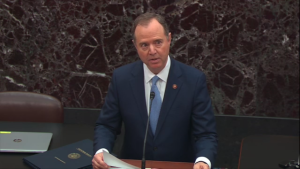The U.S. Supreme Court issued a unanimous ruling in Lora v. United States, clarifying a complex aspect of federal sentencing law related to firearm offenses. The case centered on the interpretation of two closely related federal statutes: 18 U.S.C. § 924(c), which governs penalties for using a firearm during certain crimes, and 18 U.S.C. § 924(j), which addresses causing death through the use of a firearm in the course of a drug trafficking or violent crime. The Court’s decision has significant implications for judicial discretion and the administration of criminal justice in cases involving firearms.
Background of the Case
Efrain Lora, a defendant from the Bronx, was involved in a violent drug-related dispute that resulted in the death of a rival dealer. Lora faced multiple federal charges, including aiding and abetting a firearm-related homicide under § 924(j) and conspiring to distribute narcotics under federal drug laws.
During sentencing, the district court imposed consecutive prison terms: a 25-year sentence for the drug distribution conspiracy and an additional five-year term for the firearm-related offense. The court’s decision was based on an interpretation that the consecutive sentencing mandate in § 924(c) applied to § 924(j) convictions. This interpretation effectively eliminated the possibility of concurrent sentences and resulted in a lengthier total prison term.
The legal question before the Supreme Court was whether Congress intended for the consecutive sentencing requirement in § 924(c) to apply to § 924(j) convictions. This question raised broader concerns about statutory interpretation, legislative drafting, and the discretion afforded to federal judges in sentencing decisions.
The Legal Issue
At the heart of the dispute was the relationship between § 924(c) and § 924(j). Section 924(c) criminalizes the use, carrying, or possession of a firearm during and in relation to certain drug trafficking or violent crimes and imposes mandatory consecutive sentences for these offenses. In contrast, § 924(j) specifically addresses situations in which a firearm is used to cause death in the context of drug trafficking or violent crimes.
The controversy arose because § 924(j) does not explicitly incorporate the consecutive sentencing requirement from § 924(c). Lora argued that the district court erred in applying the consecutive sentencing rule to his § 924(j) conviction. Federal prosecutors maintained that the original sentencing was correct, contending that the statutes should be interpreted together to produce a consistent penalty scheme.
The Supreme Court was asked to resolve this tension, determining whether judges retained discretion to impose concurrent or consecutive sentences for § 924(j) convictions or whether the mandatory consecutive rule from § 924(c) automatically applied.
Supreme Court Decision
In a unanimous opinion authored by Justice Ketanji Brown Jackson, the Supreme Court sided with Lora. The Court held that the consecutive sentencing mandate in § 924(c) does not extend to § 924(j) convictions.
The Court emphasized that while § 924(c) and § 924(j) address related types of criminal conduct, they are distinct statutory provisions with separate elements and penalties. Section 924(j) does not include language requiring consecutive sentences, and the Court found no indication that Congress intended to fold the § 924(c) consecutive sentencing mandate into § 924(j).
The Court further explained that applying § 924(c)’s consecutive sentencing rule to § 924(j) could create anomalies, such as situations where the maximum sentence could paradoxically be lower than the minimum sentence, resulting in an inconsistent and inequitable penalty structure. By interpreting § 924(j) as independent, the Court preserved judicial discretion in determining whether sentences should run concurrently or consecutively.
Implications of the Ruling
The decision carries significant consequences for federal sentencing law and the broader criminal justice system:
-
Restoration of Judicial Discretion: Federal judges now retain the authority to decide whether sentences under § 924(j) run concurrently or consecutively. This discretion allows for more individualized and proportionate sentencing that better reflects the circumstances of each case.
-
Impact on Federal Prison Terms: In practice, this ruling may reduce the length of prison terms for certain defendants previously convicted of firearm-related offenses under § 924(j). It recognizes that mandatory consecutive sentences are not automatically warranted for all offenses involving firearms.
-
Clarification of Statutory Interpretation: The case underscores the importance of clear legislative drafting. Ambiguities between closely related statutes can lead to significant disparities in sentencing outcomes, and courts must interpret these provisions according to the plain text and congressional intent.
-
Broader Legal Precedent: By ruling that § 924(j) convictions are not automatically subject to § 924(c)’s consecutive sentencing requirement, the Court has provided guidance for interpreting similar statutes. This precedent may affect future cases where multiple statutory provisions intersect but do not explicitly reference one another.
-
Equity in Sentencing: Advocates for criminal justice reform note that the ruling reinforces the principle of proportional punishment. By giving judges discretion, the Court allows the penalty to better fit both the severity of the crime and the individual circumstances of the defendant.
Reactions to the Decision
Legal experts widely welcomed the ruling for its clarity and reaffirmation of judicial discretion. Members of Lora’s legal team emphasized that the decision preserves the longstanding default that judges can impose sentences tailored to the circumstances of a case. They noted that this approach helps ensure justice is administered fairly, particularly in complex cases involving multiple overlapping charges.
Federal prosecutors expressed disappointment but acknowledged that the decision aligns with the statutory text. They noted that Congress, if it intended consecutive sentences to apply automatically to § 924(j), could amend the law to clarify the scope of sentencing requirements.
Broader Context
This case highlights the challenges of navigating federal sentencing law, especially when statutes overlap or contain ambiguities. The ruling demonstrates the Court’s careful attention to statutory language and its commitment to interpreting laws in a way that reflects legislative intent without imposing unintended consequences.
While the decision primarily affects defendants convicted under § 924(j), its implications extend to the broader understanding of how related statutes should be applied in criminal cases. It reinforces the principle that judges play a central role in ensuring that sentences are fair, consistent, and appropriate to the facts of each case.
Conclusion
The Supreme Court’s decision in Lora v. United States represents a key development in federal criminal law, particularly in the area of sentencing for firearm-related offenses. By ruling that the consecutive sentencing requirement of § 924(c) does not automatically apply to § 924(j) convictions, the Court has reaffirmed the discretion of judges to impose sentences that are proportionate, equitable, and tailored to individual circumstances.
This ruling serves as a reminder of the importance of careful statutory interpretation and the ongoing dialogue between the judiciary and legislature in shaping the criminal justice system. It also illustrates the Court’s commitment to ensuring that sentencing outcomes reflect both the text of the law and the unique factors of each case, balancing public safety, fairness, and justice.
For those interested in the full legal analysis, the Supreme Court opinion can be accessed online through the Court’s official website, offering detailed insight into the reasoning behind this unanimous decision.

James Jenkins is a celebrated Pulitzer Prize-winning author whose work has reshaped the way readers think about social justice and human rights in America. Raised in Atlanta, Georgia, James grew up in a community that instilled in him both resilience and a strong sense of responsibility toward others. After studying political science and creative writing at Howard University, he worked as a journalist covering civil rights issues before dedicating himself fully to fiction. His novels are known for their sharp, empathetic portraits of marginalized communities and for weaving personal stories with broader political realities. Jenkins’s breakout novel, Shadows of Freedom, won national acclaim for its unflinching look at systemic inequality, while his more recent works explore themes of identity, resilience, and the fight for dignity in the face of oppression. Beyond his novels, James is an active public speaker, lecturing at universities and participating in nonprofit initiatives that support literacy and community empowerment. He believes that storytelling is a way to preserve history and inspire change. When not writing, James enjoys jazz music, mentoring young writers, and traveling with his family to explore cultures and stories around the world.









